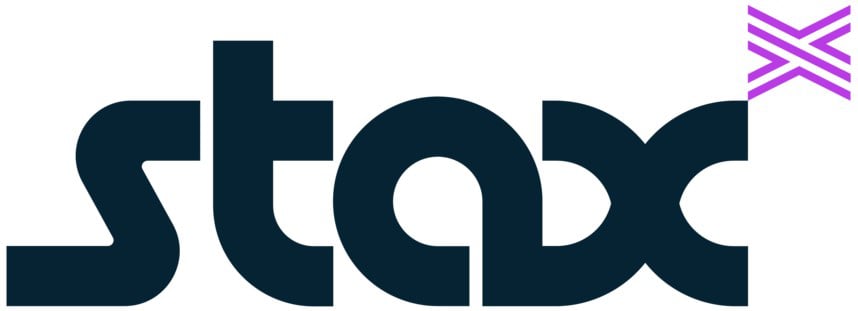What Is a Payment Processor?

Many or all of the products featured here are from our partners who compensate us. This influences which products we write about and where and how the product appears on a page. However, this does not influence our evaluations. Our opinions are our own. Here is a list of our partners and here's how we make money.
A payment processor is a vendor businesses use to manage the logistics of accepting card payments. It shuttles card data from wherever customers tap, swipe or enter their card details to the payment networks — such as Visa, Mastercard, American Express and Discover — and banks involved in the transaction.
If your business wants to accept card payments, having a payment processor is a must. Some payment processing companies combine payment processing with point-of-sale systems and hardware, while others focus mostly on payments. The best option depends largely on your business' sales volume and method of accepting payments.
How payment processing works
When a business accepts card payments, a payment processor works in the background to finalize those transactions and move money from the customer's card account to the merchant's account. Here's what the process looks like:
A customer gives the merchant their card information. This can be at a terminal in a store, a payment page online or through another method. The information is submitted through the payment gateway, which is a payment processing portal that sometimes comes bundled with payment processing services.
The payment gateway encrypts the information and securely sends it to a payment processor, which initiates the transaction by sending the information to the card network, such as Mastercard or Visa, for approval.
The card network informs the payment processor whether the payment request is approved.
The merchant completes the transaction with the customer.
Once the transaction is complete, the payment processor informs the bank that issued the customer’s card (the issuing bank) to send funds to the merchant’s bank (the acquiring bank).
The merchant gets access to the funds from the sale. This can happen immediately or within a few business days, depending on the payment provider and the type of account where the funds are sent.
The cost of card transactions
It costs money to build, maintain and operate the networks along which the data and money flow. The companies that do this work — card issuers, networks and payment processors — charge merchants for using these networks and services.
The fees for each transaction are collected from the merchant's sales by the payment processor, which takes a cut and passes the remainder along to the various intermediaries. The total fee, called the merchant discount rate, is generally 2% to 3% of the total purchase and includes:
Interchange fees make up the majority (about three-quarters) of the total fees incurred during a card transaction. Card networks set interchange fees, and they go to the issuing bank. For example, if the customer used a Citi Mastercard credit card, the interchange fee would be set by Mastercard and would go to Citi. The fee for each transaction varies depending on a variety of factors, including the type of card used, the industry the merchant is in and whether the card was used in person or online. Because of the many variables, there are more than 700 interchange rates, though the differences can be just a fraction of a percent.
Assessment fees and dues are paid to the card network, like American Express or Discover. The amount owed is a percentage of the month’s gross sales, with some variance for international sales, whether a transaction was paid with a debit or credit card and other factors.
Processor/acquirer fees compensate the payment processor.
NerdWallet rating 5.0 /5 | NerdWallet rating 5.0 /5 | NerdWallet rating 5.0 /5 |
Payment processing fees 0.40% + 8¢ plus interchange, in-person; 0.50% + 25¢ plus interchange, online. | Payment processing fees 2.6% + 10¢ in-person; 2.9% + 30¢ online. | Payment processing fees 2.7% + 5¢ in-person; 2.9% + 30¢ online. |
Monthly fee $0 | Monthly fee $0 Starts at $0/month for unlimited devices and locations. | Monthly fee $0 |
How to choose a payment processor
Before choosing a payment processor, consider these factors.
Pricing model
The overall cost of a payment processing service includes transaction fees, monthly fees, chargeback fees and less-obvious costs such as membership fees, setup costs, PCI compliance fees and cancellation fees.
There are two main pricing models that dictate your monthly costs and transaction fees, in particular:
Interchange-plus pricing consists of the interchange rate plus a defined markup. The markup can be a percentage, a fixed amount or both. For example, you might pay the interchange rate plus 15 cents on all transactions. Interchange pricing can often be less expensive than flat-rate pricing, especially for businesses with large sales volumes, though with hundreds of interchange rates, it also has more variability.
Flat-rate pricing consists of a single rate for all transactions accepted a certain way, regardless of the specific interchange rate. For example, you might pay 2.3% plus 15 cents for in-person transactions and 3% plus 30 cents for online transactions. While this model is straightforward and predictable, the overall costs can be higher, especially for businesses with high sales volumes
POS hardware
If you plan to take in-person payments, POS hardware, like a countertop POS terminal or mobile card reader, is a must. POS systems and the software that goes along with them can also record cash payments, manage inventory, generate sales reports, integrate with accounting software and much more.
If you want both payment processing and POS functionality in one system, confirm that the payment processor offers both. If you want to keep an existing POS system, confirm that it is compatible with the processor’s system. Some processors may help you integrate systems, while others may want you to purchase new hardware from them.
Where you do business
Does your business have a brick-and-mortar location, operate almost entirely on the road or do most of its sales online? Some payment processors, like Stripe, are designed primarily for e-commerce. Others, like Clover, have several hardware options for in-person businesses. Most processors also charge different rates for in-person, online and invoice transactions so keep that in mind when choosing a processor. In general, you can expect online fees to be higher than in-person ones.
Industry risk
Some payment processors won’t provide services to businesses because of the regulatory or financial risk involved in accepting certain payments. Industries that are sometimes excluded in payment processors’ terms of service include those with:
High rates of fraudulent card transactions, such as gas stations.
High rates of chargebacks, like infomercial or telemarketing sales.
Sales that are regulated under federal or state law, such as firearms or marijuana.
If your business is in such an industry, your payment processor choices might be more limited.
Payment service providers vs. merchant acquirers
The final step of the transaction process is getting paid. Funds from card transactions are deposited into a merchant account before they end up in your business’s bank account where they can be used. There are two types of merchant accounts you can choose from: a dedicated merchant account (provided by a merchant acquirer) or an aggregated merchant account with a payment service provider.
Dedicated merchant accounts
Hundreds of financial institutions offer dedicated merchant accounts, ranging from large banks, like Chase, to institutions that specialize in merchant account services, like Payment Depot. Businesses of any size can open up a merchant account, but larger businesses often find this type of account to be most cost-effective and scalable. However, the application process can be lengthy, which means you probably won’t be able to start accepting payments immediately.
Payment service provider accounts
If you use an aggregated account through a payment service provider, such as Toast, you don’t have ownership of a merchant account directly. Instead, the PSP maintains its own merchant account, which collects the payments on behalf of your business and many others. Your funds get routed to a subsidiary account you maintain with the PSP.
Many popular PSPs include features you might not get with a merchant account, like instant access to funds. However, because you aren’t the owner of the account, you cede certain aspects of control.
Contract length
Some payment processors offer no-contract relationships without cancellation fees while others don’t. With some services, you’ll own your customer data if you choose another vendor in the future; with others, you won’t. That could mean you’ll have to start a new loyalty program from scratch if you switch, for example.
Accounting software integrations
The ability to export transaction data to accounting software is important, regardless of whether you use a card reader and app or a complete POS system. Having the ability to import or even sync sales data to your accounting software will improve accuracy and save you from having to manually enter the data.
Deposit timing
The time it takes to receive the funds from a card transaction should be short. The next day is optimal. And an option for same-day deposits can be important for some businesses. If there’s a fee for same-day deposits and you plan to use this option, remember to estimate the added cost per month. Also, some payment processors may want you to use a specific account for payment deposits. Ask if you can use a bank account of your choice, if that’s your preference.
Customer support
Live 24/7 support is the best option, but may not be a priority for every business. However, if you have extended business hours, key-in payments from across the country, or take mobile payments at weekend events, an issue with the processing of a payment can result in the loss of a sale and the revenue that goes with it.
Payment processing best practices
Payment processors may freeze your account if they suspect customer or merchant fraud. This can happen if your business experiences a high volume of chargebacks or the processor flags unusual activity, like a large transaction amount or payment details that don’t add up. While small businesses can’t avoid fraud altogether, they can implement practices to minimize the risk of having their accounts frozen.
Here are some best practices to follow when working with a payment processor.
Keep chargebacks to a minimum. You may be able to reduce chargebacks by establishing clear return policies, offering responsive customer support and providing clear information about when items are shipped and delivered.
Don’t process a transaction larger than your limit. If your processor places a limit on how much you can process in one transaction, don’t try to process a larger amount. If your business will be regularly processing more than your transaction limit, talk with your processor about increasing your limit.
Notify your processor in advance of large transactions. Letting your payment processor know in advance that you’ll be processing a transaction that’s larger than your usual amount gives it time to ask questions and verify information.
Know how to contact your payment processor directly. Prompt communication is key to getting an account freeze resolved. The processor might not be able to give you a full explanation of what it's looking at to ensure it can carry out an investigation, but it should be able to tell you why your account has been frozen and what you can do to assist the investigation. If your processor requests information or documentation relating to specific transactions, provide it as quickly and transparently as possible.
Have a backup way to accept payments. Be prepared to accept other payment methods, like cash or check, if your account gets frozen. Payment processors generally stipulate in their contracts that they can freeze accounts and investigate merchant activity for up to 120 days. If you don’t have a savings fund to fall back on, consider reaching out to your accountant or financial advisor, the U.S. Small Business Administration, a local Small Business Development Center or a SCORE business mentor to help address your financial concerns and find assistance in the meantime.
Our Nerdy Picks for payment processors
Top payment processing companies
Square: Best all-in-one solution
Square’s payment processing services, which come included with its POS system, stand out with its easy-to-understand pricing. It charges 2.6% plus 10 cents per in-person transaction and 2.9% plus 30 cents for online transactions. Prices for restaurants or if you're using Square’s free version vary slightly.
Square Payment ProcessingShop Now on Square's website |
Helcim: Good interchange-plus option
Unlike its flat-rate competitors, Helcim passes interchange savings to the business when customers use cards that have low interchange fees. Then, it charges a consistent flat fee on top of interchange rates. There are no monthly subscription costs and it doesn’t require a contract, either.
Stripe: Ideal for online businesses
If you do most or all of your business online, it’s useful to have a processor that specializes in e-commerce transactions. Stripe is a highly customizable option that also functions as a payment gateway and merchant account. It’s easy to use and charges 2.9% plus 30 cents per transaction for online payments and 2.7% plus 5 cents for in-person transactions.
Stripe |
Whitney Vandiver, a writer at NerdWallet, contributed reporting to this article.
| Product | Payment processing fees | Monthly fee | Learn more |
|---|---|---|---|
 Helcim NerdWallet Rating Learn more on Helcim's website | 0.40% + 8¢ plus interchange, in-person; 0.50% + 25¢ plus interchange, online. | $0 | Learn more on Helcim's website |
 Square NerdWallet Rating Learn more on Square's website | 2.6% + 10¢ in-person; 2.9% + 30¢ online. | $0 Starts at $0/month for unlimited devices and locations. | Learn more on Square's website |
 Stripe Payments NerdWallet Rating Learn more on Stripe's website | 2.7% + 5¢ in-person; 2.9% + 30¢ online. | $0 | Learn more on Stripe's website |
 Shopify POS NerdWallet Rating Learn more on Shopify's website | 2.70% in-person; 2.9% + 30¢ online (Basic plan). | $39 and up for e-commerce plans with POS Lite; Can upgrade to POS Pro for an extra $89. | Learn more on Shopify's website |





